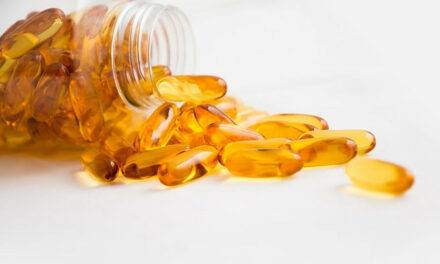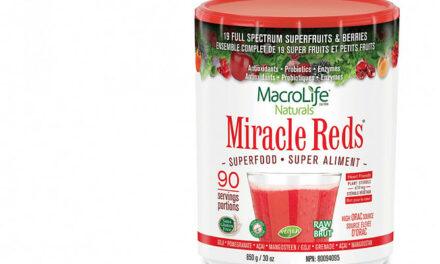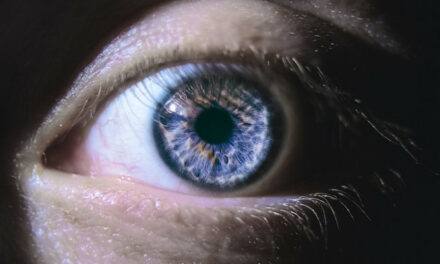Everything you need to know about Lecithin and high blood pressure is discussed here. As you read, you will understand that all the Lecithin supplements in the market are not the same, and differ in many aspects, so the ultimate focus in this guide will be on guiding you in choosing the best Lecithin supplement to help control blood pressure under certain circumstances.
Lecithin is used for the treatment and improvement of liver problems, high cholesterol levels, and neurological (nerve) disorders. Though scientific research gives some mixed impressions about the effectiveness, safety, and purity about taking Lecithin as a supplement (i.e. tablets), its significance in normal biological function cannot be understated..
In this article, we are doing to discuss the benefits of Lecithin, how Lecithin can help to manage blood pressure, how it interacts with other drugs, and who should and shouldn’t consider taking Lecithin… and many more question that we were asked by our readers.
Let’s start the topic by defining what Lecithin is.
What is Lecithin?
Lecithin is an essential fat in the body cells.
It can be seen in several foods as well as in supplements.
It is not only one, but a collection of chemicals known as phospholipids. The essence of these phospholipids is to help build the cell membrane.
In other words, Lecithin, a complex of essential phospholipids, serves as a crucial component of cell membranes throughout the body. Found naturally in various foods and available as supplements, Lecithin plays a key role in maintaining cellular integrity and function.
The body needs it for standard functioning of the nerve, brain, blood and other tissues.
Types of Lecithin
Usually, Lecithin supplements are taken from sunflower seeds, soybeans or egg yolk.
Soy is the most common ingredient used in producing Lecithin supplements, but sometimes, fish, animal fats and corn are also used.
Soybean Lecithin comes in capsule form while sunflower Lecithin can be seen in both liquid and powdered form.
Generally, sunflower Lecithin is not common, yet many people like it because it helps them to escape a genetically modified organism (GMOs) while eating.
Sometimes, soybeans are ‘genetically modified’ during mass production, but it is not the same with sunflower seeds. Sunflower Lecithin’s process of extraction is also gentle as it does not demand harsh chemicals.

Tip: RESPeRATE Blood Pressure Lowering Device might be a better option to lower the ‘norm’ of your hypertension.
What are the Benefits of Taking Lecithin?
Lecithin breaks down to choline when taken, and it helps in several important processes, such as the ones noted below.
Improving heart health
Soy Lecithin can boost cardiovascular health, particularly when there is a risk of heart disease or high blood pressure.
It takes the body a long time to breathe down soy products because soy is not easy to digest. This makes some people feel full after taking it.
Improving digestion
Lecithin is proven to improve digestion in individuals with ulcerative colitis. The qualities of Lecithin emulsifying help in stimulating the mucus in the intestine, protecting the soft lining of the digestive system and making digestion easier.
People without ulceration colitis may still use Lecithin if they suffer irritable bowel syndrome (IBS) or any disease that affects the digestive process.
It helps with breastfeeding mothers
Some professional recommends Lecithin as a remedy for preventing continually plugged ducts. To experience this, Breastfeeding Foundation in Canada (BFC) suggests a 1,200 milligrams dose 4 times a day.
The Foundation assumes that Lecithin reduces the viscosity of the breast milk so that it will not clot milk ducts in the breast.
However, it is not for plugged ducts treatment. Ducts are usually treated with; massage, warm compresses application, extra pumping (if necessary), draining the breast properly, and more suggestions from a lactation consultant.
Moisturizes and soothes the skin
Many skincare products use Lecithin in their ingredients. It restores hydration and makes the skin looks smooth.
The king of Lecithin, mostly used in these products is known as hydrogenated Lecithin.
People use Lecithin for eczema and acne cure, though there is no enough evidence which shows that Lecithin can do that when it is used alone.
Intake of the Lecithin capsule can as well improve the skin. Since it stimulates and tones other parts of the body.
[et_bloom_locked optin_id=optin_3][/et_bloom_locked]
Fights symptoms of dementia
Lecithin has the content of choline, a chemical used by the brain to communicate.
A suggestion from clinical research says that a meal rich in choline improves the memory and assists individuals with Alzheimer’s.
Substances with choline content such as Lecithin can improve the functional pathways of the brain.
Some people believe that Lecithin can also be used in treating individuals with nervous system neurological conditions, though there is still some evidence conflicting it, Lecithin benefits are promising.
Supports the liver
Lecithin helps the function of the liver in all aspects such as;
- balancing hormones,
- eliminating toxins and
- assimilating nutrients.
It guards the liver against injury caused by medications, alcohol, viruses, pollutants, radiation treatments, and mushroom poisoning.
Lecithin is also very helpful in treating hepatitis
Protects the arteries
Lecithin reduces the level of plasma homocysteine which can increase the risk to arterial and heart disease when elevated.
It also increases the sensitivity of the cells to insulin, reducing type 2 diabetes risks.
Also, it reduces the artery-clogging fat build-up and degenerates existing deposits, strengthening the artery to prevent heart disease.
Total women wellness
Lecithin helps to reduce several estrogen-related issues by assisting the liner in converting estradiol
to estriol. It is therefore essential in reversing or preventing hormonal imbalances related diseases like;
- PMS,
- Fibrocystic breast syndrome,
- Uterine fibroid,
- Estrogen-related cancers, and
- Endometriosis.
Usually, such problems dramatically improve after one or two months of taking Lecithin with inositol or with other nutrients that support the liver.
Heals wound quickly
Since Lecithin is rich in linoleic acid with other critical fatty acids, it assists in releasing cytokines (inflammatory transmitters that heals wounds).
Applying Lecithin to minor scabs, bruises or cuts will help release the pain and heal the wound quickly.
Lecithin absorbs anti–oxidants like Vitamins A, D, E, and K
It slows the process of aging by keeping cell membranes from hurt
Here is all the benefits of Lecithin and to-date scientific evidence in a summary table. I have also noted some perspectives based on our personal experience.
| Benefits | Evidence and Personal Experience |
|---|---|
| Improving heart health | Scientific studies suggest soy Lecithin may improve cardiovascular health and blood pressure regulation. Personal experiences have reported feeling full after consumption. |
| Improving digestion | Lecithin’s emulsifying properties support digestion and may benefit individuals with ulcerative colitis. Personal experiences have reported relief from digestive discomfort. |
| Breastfeeding support | The Breastfeeding Foundation in Canada recommends Lecithin to prevent plugged milk ducts. Personal experiences have shown positive outcomes in preventing duct blockages. |
| Skin hydration and care | Some skincare products use Lecithin for hydration and smooth skin. Personal experiences have reported improvements in eczema and acne when used in combination with other products. |
| Cognitive support and dementia prevention | Choline, a component of Lecithin, is associated with improved memory and cognitive function. Personal experiences have shown potential benefits in supporting brain health. |
| Liver health and protection | Lecithin aids in liver function, hormone balancing, and toxin elimination. Personal experiences have reported positive effects in supporting liver health. |
| Cardiovascular and artery protection | Lecithin reduces plasma homocysteine levels, promoting heart and artery health. Personal experiences have reported improvements in overall cardiovascular health. |
| Hormonal balance and women’s wellness | Lecithin’s role in estrogen metabolism may benefit individuals with estrogen-related conditions. Personal experiences have shown improvements in hormonal imbalances. |
| Wound healing and anti-inflammatory | Lecithin’s fatty acids contribute to wound healing and inflammation reduction. Personal experiences have reported faster healing of minor cuts and bruises. |
| Antioxidant support and aging prevention | Lecithin aids in the absorption of antioxidants, potentially slowing the aging process. Personal experiences have indicated benefits in maintaining youthful-looking skin. |
Possible Lecithin Interaction with Other Drugs
It is necessary to follow the instructions of the health care providers concerning any restrictions on beverages, food or activity. Lecithin may interact with other drugs, including over-the-counter and prescription medicines, herbal products and vitamins.
Therefore, it is advisable you speak with a health care provider before taking Lecithin.
For example, Lecithin should not be taken without medical advice when using topical diclofenac (Voltaren Gel).
Lecithin also may interact with other drugs that are not listed here.
Who Should Take Lecithin?
Lecithin helps to reduce cholesterol, and that has always been the major reason why people seem to consume it.
Also, we are aware individuals with various conditions (such as dementia, Alzheimer’s, skin, liver and gall bladder disease, certain types of anxiety and depression, and also many other health disorders) believe there are many other health benefits of Lecithin. However, most of those benefits haven’t been scientifically proven as yet.
Tip: Here are the best supplements for stress and anxiety.
Who Shouldn’t Take Lecithin?
People who take herbal or other medicines such as health supplements and those with allergies should discuss with their doctors before using Lecithin.
Pregnant women are not advised to use Lecithin without any sort of medical advice.
Generally, Lecithin is not recommended for pregnant women. Breast-feeding mothers also are not advised to use Lecithin without the doctor’s recommendation.
It is not yet clear if children can use this supplement, but they should not be given any herbal or health supplement without the doctor’s approval too.
I have also added all the reasons to take and not to take Lecithin in the Table below, so you can make an informed decision together with your doctor’s advice.
| Who Should Take Lecithin? | Who Shouldn’t Take Lecithin? |
|---|---|
| – Individuals with high cholesterol levels | – Pregnant women without medical advice |
| – Those with neurological disorders (as directed) | – Breastfeeding mothers without medical advice |
| – People seeking cardiovascular support | – Children without medical approval |
| – Individuals with liver or gall bladder issues | – Individuals with allergies (consult a doctor first) |
| – Breastfeeding mothers (to prevent plugged ducts) | – People taking specific medications (seek advice) |

Why Should I Take Lecithin?
Lecithin has a lot and different health benefits, which is vital for the body.
It serves as an emulsifier, and this implies that it suspends the oils and fats, and keeps them from other substances.
Lecithin can help in treating high cholesterol, ulcerative colitis, and can help in breasting feeding and many others.
Our Personal experiences have shown improvements in cholesterol levels and cardiovascular health with Lecithin use. However, pregnant and breastfeeding individuals should consult their doctors before considering Lecithin, and children should not use it without medical approval.
Tip: Did you know Coconut Oil and Kril Oil might able to manage your blood pressure better?
What are the Side Effects of Lecithin?
Allergies
Since soy Lecithin is made with soybeans oils, it contains soy protein that can spike soy allergies. However, a blood sample from a patient who is sensitive to soybeans usually displays no reaction to Lecithin.
It has the content of Immunoglobulin E (IgE) binding proteins. At the time, these proteins act on the antibodies of the immune system, they cause an allergic response that can lead to digestion discomfort and rapid inflammation.
Who suffers from soy allergy is advised to be cautious with Lecithin and other products containing Lecithin, though.
Infertility in men
Lecithin and other soy products have the content of plant hormone phytoestrogen, it acts like estrogen (human hormone).
Research shows that phytoestrogen can cause hormone imbalance and low sperm count in male rats when it is added to their meal, so it could also do the same in men.
Blood clotting
Research studies show that taking Lecithin daily can increase clumping of blood cell in the blood vessels to seal, and leads to heart disease.
Fat build-up
Lecithin boosts the production and storage of fat. When the body is introduced to Lecithin, the liver cells will begin to build up and store fat.
Difficulty in breathing
Swelling of the tongue, lips, hives or face
Other minor side effects may include the following
Nausea
Little or no appetite
Increased salivation
There may be other possible side effects, but it is necessary to seek medical advice if any of these side effects or another health issue is noticed.
[et_bloom_locked optin_id=optin_3][/et_bloom_locked]
Can Lecithin Cause High Blood Pressure?
Recent research shows that taking phosphatidylcholine, Lecithin major component can raise the compound TMAO blood levels temporarily. The action of enzymes in the liver and microbes in the gut produces TMAO in phosphatidylcholine from choline. TMOA reduces normal cholesterol clearing, thereby hardening the arteries.
Research also has it that consuming two boiled eggs (about 500mg total choline content) can raise the levels of TMAO blood plasma temporarily. The study further suggests that immoderate consumption of choline and dietary phosphatidylcholine should be avoided. It is advisable because foods that are high in these compounds such as liver, egg yolk, pork, and beef are also usually high in cholesterol and fat.
Researchers highlight some facts that a high fiber diet or a vegetarian can minimize the total intake of choline.
Unless medically approved, it is necessary also to avoid prolonged supplementation, which is high in lecithin, choline, and phosphatidylcholine.
Tip: There are many causes for hypertension, and its symptoms depend on the stage of hypertension.
Can Lecithin Cause Low Blood Pressure?
Lecithin can lower blood pressure. The content of linoleic acid in sunflower Lecithin assists in breaking accumulated excess fats in the body like cholesterol and triglycerides. When there is a high level of triglycerides and cholesterol in the body, they invade the arterial walls and cause arteriosclerosis. Individuals with arteriosclerosis can have high blood pressure since their arteries are thickened. They also have increased chances of health attack or stroke. Daily intake of recommended Lecithin will assist in gradually unclogging the arteries and reduce blood pressure.
Does Lecithin Cause Heart Problems?
Evidence from research confirms that choline, a nutrient generally seen in foods such as egg yolks, red meat, and dairy products, can clot the blood.
Choline helps to produce TMAO (trimethylene N-oxide) when interacted with gut bacteria and causes the blood to be prone to clotting.
High levels of TMAO in the blood increases the risk of stroke, heart attack, and even death. The study suggests reducing high choline food consumption, and supplements intake unless approved by a doctor.
Below I have summarised the effects of Lecithin on blood pressure and heart health.
| Effect | Evidence and Personal Experience |
|---|---|
| Potential Increase in Blood Pressure | Recent research suggests that phosphatidylcholine, a major component of Lecithin, may temporarily raise TMAO levels in the blood. Elevated TMAO levels can contribute to arterial hardening and increase heart disease risk. Individuals with specific health conditions should avoid excessive choline and phosphatidylcholine supplementation. Personal experiences have reported mild increases in blood pressure after prolonged Lecithin use. |
| Potential Decrease in Blood Pressure | Lecithin’s linoleic acid content in sunflower Lecithin may gradually unclog arteries and reduce blood pressure in individuals with arteriosclerosis. Personal experiences have shown gradual improvements in blood pressure with regular Lecithin consumption. |
| Heart Health and Choline | Choline from Lecithin, found in foods like egg yolks and dairy products, may contribute to blood clotting. High TMAO levels in the blood increase the risk of stroke, heart attack, and other heart problems. Individuals with high choline intake should be cautious and consult their healthcare providers. Personal experiences have shown the importance of balanced choline intake for heart health. |

Lecithin Foods
Lecithin is seen in several foods.
Common foods rich in Lecithin include the following. Including these Lecithin-rich foods in your diet can be beneficial for overall health and nutrition.
- Red meat
- Eggs
- Peanuts
- Canola oil
- Wheat germ
- Organ meats (liver)
- Green vegetables (such as Brussels sprouts and broccoli)
- Legumes (such as soybeans, kidney beans, and black beans)
Tip: Did you know Coconut Oil and Kril Oil might able to manage your blood pressure better?
6 Best Lecithin Supplements
Each dosage of a good Lecithin supplement should contain from 1200 to 2400mg of Lecithin.
When considering buying a ‘good’ Lecithin supplement, it is necessary to be certain that it’s coming from a well-known and trusted company.
Below are some of the leading Lecithin supplements.
1. Pure Naturals Lecithin

This Lecithin supplement is straightforward and contains 1200mg soy Lecithin in each capsule like several other Lecithin products. However, one unique thing about pure natural is that it does not contain GMOs, and retains the natural ingredients, unlike most soy that are genetically modified.
2. NutraBlast Soy Lecithin

This product contains 1200mg soy in each capsule and comes in an immaculate design. It is been praised by users for its efficacy during prolonged use.
3. Now Lecithin

This Lecithin supplement comes with 400 capsules in a bottle. Its tablet is derived from gelatin, and the Lecithin itself is made from soy.
4. Natural Nutraceuticals Lecithin

This Natural Nutra Lecithin supplement is derived from soy and contains the usual 1200mg Lecithin in each capsule. This supplement suits better for short-term use because the number of pills in each bottle are not many.
5. Solgar Soya Lecithin

Solgar contains the highest dosage of 1360mg soy. Lecithin in each capsule different from the normal 1200mg.
Without any unnecessary ingredients, the design of this supplement is clean, which makes it a solid choice.
6. Lecico Lecithin

Here is a summary table to help you compare the best Lecithin supplements.
| Brand | Dosage (per capsule) | Key Features |
|---|---|---|
| Pure Naturals Lecithin | 1200mg | Non-GMO, sourced from soy, clean ingredients |
| NutraBlast Soy Lecithin | 1200mg | High efficacy, user-recommended |
| Now Lecithin | 1360mg | Gelatin-based tablets, sourced from soy |
| Natural Nutraceuticals | 1200mg | Derived from soy, short-term use recommended |
| Solgar Soya Lecithin | 1200mg | High Lecithin content, clean formulation |
| Lecico Lecithin | Varies | Specific dosage instructions based on needs |
How should I take Lecithin? – The Dosage
The appropriate Lecithin dosage varies depending on several factors, such as age and overall health condition. However, it is crucial to note that there is no one-size-fits-all dosage recommendation for Lecithin. Consulting a healthcare provider is essential to determine the most suitable dosage based on individual needs and health status. The safety of Lecithin dosage is best determined with medical advice to ensure optimal efficacy and minimal risks.
Whether the product is artificial or natural, that does not ensure that they are safe. Most supplements have unpleasant side effects; therefore, it is always advisable to talk with a doctor or any health care provider concerning the appropriate dosage before using Lecithin.
Conclusion
In conclusion, Lecithin holds promising benefits for human health, including liver and heart support, cognitive function enhancement, and various other biological activities. While scientific evidence may present inconclusive findings, many individuals have reported positive outcomes with Lecithin use.
To make informed decisions, it is highly advisable to seek medical advice before incorporating Lecithin into your supplement regimen. A healthcare provider can provide personalized guidance based on your unique health needs, ensuring safe and effective usage of Lecithin.
Tip: RESPeRATE Blood Pressure Lowering Device might be a better option to lower the ‘norm’ of your hypertension.







Blood pressure is one of the diseases that can cause a lot of trouble and does not affect only the elderly. Due to the level of stress and pressure of life and improper nutrition, many young people have these problems. This article introduces Lecithin to you, what it is, what it does, and what benefits it has. If you are worried about its use, it will also check its drug interactions for you and explain possible negative effects such as allergies. Be sure to read this article.
Dear Liam,
Thank you for your thoughtful comment on the article about Lecithin and its potential impact on high blood pressure! As experts on the topic, we appreciate your insights into the significance of blood pressure as a health concern that can affect individuals of all ages, not just the elderly.
Indeed, the demands of modern life, stress, and improper nutrition can contribute to high blood pressure in young people as well, making it essential to explore potential solutions like Lecithin to aid in hypertension management.
The article aims to introduce Lecithin, providing readers with a clear understanding of what it is, its functions, and the potential benefits it may offer for controlling high blood pressure. It’s crucial to present information about Lecithin’s drug interactions to ensure readers are aware of potential risks when combining supplements with other medications.
Addressing possible negative effects such as allergies is equally important, as it allows readers to make informed decisions and consider any individual sensitivities they may have.
As experts, our goal is to provide well-researched and comprehensive information to empower readers to take control of their health and explore potential complementary approaches for managing conditions like high blood pressure.
If you have any more questions or need further information about Lecithin, hypertension management, or anything else related to health and well-being, feel free to ask. We are here to support you on your health journey and provide valuable insights for your well-being.
Thank you again for your comment, and I encourage readers to read the article to gain a better understanding of Lecithin and its potential role in controlling high blood pressure. Taking charge of your health is essential, and being informed is the first step towards making positive changes.